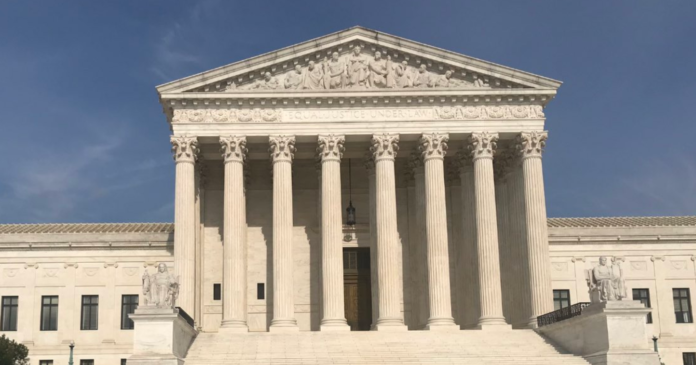Yesterday the Supreme Court delivered a verdict affirming that former President Donald Trump cannot be barred from election ballots by states, a decision informed by the legal interpretation of the Constitution’s 14th Amendment. This amendment contains a provision aimed at disqualifying from office those who have taken an oath to uphold the Constitution but have subsequently participated in insurrection or rebellion.
Without any dissenting opinions, the high court unanimously reversed a previous decision by the Colorado Supreme Court. The state court had ruled Trump ineligible to run for president due to allegations of insurrection. The Supreme Court’s ruling clarified that such a determination falls under the purview of Congress, not the states, thus affecting candidates on a national level.
The decision was delivered succinctly, without delving into whether Trump’s actions around the January 6 events indeed amounted to an insurrection. With its timing just before the Colorado primary elections, the court’s judgment also has immediate electoral implications.
Trump took to his social media platform to laud the decision as a win for the nation. In contrast, some state officials, like Jena Griswold, Colorado’s Secretary of State, expressed dissatisfaction, suggesting that the decision, while closing one avenue of legal recourse, potentially opens another for Congressional action.
Within the court, some justices expressed concerns about the breadth of the ruling. The liberal justices, joined by Justice Amy Coney Barrett, suggested the majority had overstepped by addressing future enforcement of Section 3 more broadly than was necessary for the case at hand.
The ruling brings clarity to the role states play in determining the eligibility of federal candidates, effectively keeping Trump in the presidential race and setting a standard for how such constitutional provisions are enforced.
With this resolution, the Supreme Court has underscored the division of power between state and federal jurisdictions in election law and has delineated the role of Congress in upholding constitutional qualifications for office. This determination may shape the legal landscape regarding election qualifications and has pronounced implications for the political climate and the future of election administration.
Image is licensed under the Creative Commons Attribution-Share Alike 4.0 International license and was created by Superinformative.









